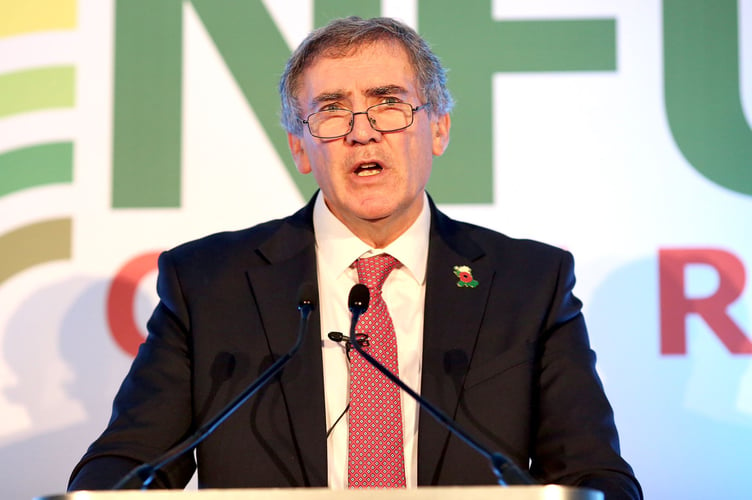NFU Cymru has expressed frustration for what is calls “a missed opportunity" by the Welsh Government to deliver urgent reforms to the Control of Agricultural Pollution (CoAP) Regulations, following the completion of a statutory four-year review.
The review, overseen by Dr Susannah Bolton, was commissioned by the Welsh Government and published alongside a written statement from Huw Irranca-Davies MS, Deputy First Minister and Cabinet Secretary for Climate Change and Rural Affairs. The review aimed to evaluate the effectiveness of the regulations in reducing agricultural pollution and mitigating its environmental impact.
NFU Cymru President Aled Jones reacted strongly to the announcement, saying: “Farmers have waited four years for this review, so it is very frustrating that Welsh Government’s response today fails to reflect the sheer desperation of farmers in Wales in grappling with the impracticality and complexity of the regulations.
"Farmers will be extremely annoyed that nothing has materially changed as a result of today’s announcement – the existing regulations remain in place - and farmers, already under very significant pressure, now face the very real threat of additional regulation in the future.”
The review acknowledged that while agricultural pollution remains a major environmental concern, many farmers are struggling with the current regulations. A survey conducted by NFU Cymru in 2024 revealed the financial burden and operational difficulties caused by the CoAP Regulations.
Martin Griffiths, Chairman of the NFU Cymru Water Quality Group, said: “Farming families are facing staggering costs and an unworkable regulatory burden that is challenging farm business viability and impacting on the health and well-being of farmers and their families."
In the government statement, Mr Irranca-Davies highlighted the significant investments already made by the Welsh Government to tackle agricultural pollution, including £52 million in financial support for farms to implement sustainable infrastructure. He also confirmed further funding for water quality enforcement, including £1.58 million for the 2025-26 financial year, and a continued partnership with Natural Resources Wales to enforce the regulations.
The review’s findings outlined several recommendations, including better targeting of regulations on high-risk activities, improving accessibility, and exploring alternative measures such as the closed periods and nitrogen limits. However, the Welsh Government stated that many of these recommendations will require significant involvement of scientific and agronomic expertise to progress, particularly in considering alternatives to the current measures.
“Farmers cannot wait another three years to see change,” said Mr Jones.
“For many farmers, the onerous regulatory burden is intolerable.
"It is clear that the much-needed improvements to the regulations will not be delivered by this government. We will continue to highlight to Welsh Government the damaging impacts imposed by the current regulatory approach and the need for a full independent review of the cumulative burden of regulations on Welsh farming families.”
Mr Irranca-Davies pledged to take forward the review’s recommendations, stressing the importance of a collaborative approach with stakeholders. He also confirmed that a strategic programme of work would be drawn up to address the issues raised and ensure future regulatory changes are fair and proportionate.




